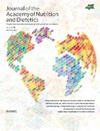自我决定、乐观、社会支持、知识和技能对长期住院急症患者的口腔摄入量有积极影响:定性研究。
IF 4
2区 医学
Q2 NUTRITION & DIETETICS
Journal of the Academy of Nutrition and Dietetics
Pub Date : 2024-09-26
DOI:10.1016/j.jand.2024.09.011
引用次数: 0
摘要
背景:虽然以往的研究试图了解住院患者口腔摄入的障碍和促进因素,但这些研究主要集中在短期住院患者身上,缺乏对影响住院患者饮食行为的决定因素的理论研究:探讨并比较影响长期住院急症患者(住院时间超过 14 天)口腔摄入量充足与不足的因素:设计:通过半结构式访谈进行定性描述研究:/地点2022年,澳大利亚布里斯班一家三级医院的两个内科病房和两个外科病房收治了21名成年住院患者(13名男性,8名女性),根据主观全面评估进行了分层:进行:首先根据理论领域框架对记录誊本进行演绎分析,然后采用反思性主题方法创建总体主题:在纳入的 21 名患者(中位年龄 68.0 岁,(IQR 34))中,11 人的摄入量充足/改善,10 人的摄入量不足/减少。确定了六个影响长期住院患者口腔摄入量的主题:1) 进食的自我决定;2) 营养影响症状;3) 膳食服务特点和流程;4) 营养相关知识和技能;5) 社会支持;6) 乐观、情绪和情绪调节。口服摄入量充足/改善的患者具有自主进食的动机。他们对自己的营养状况、有关食物促进康复的知识和技能有更多的了解,更加乐观,而社会支持是进食的重要促进因素。相比之下,口服营养不良/减少的患者认为营养影响症状和不喜欢进餐是在医院进食的主要障碍;然而,他们也表达了更多的负面情绪,减少了应对策略,减少了进食的知识、技能、内在动机和能力。在这一患者群体中,社会支持是存在的,但并不能促进口腔摄入:这项研究对影响长期住院急症患者口腔摄入量的因素提供了新的见解,强调了以患者为中心的营养护理的重要性,包括动机访谈技术和多学科团队的合作,以创造一个支持性的环境,培养患者的自主性,使他们能够积极参与自身的营养和康复。本文章由计算机程序翻译,如有差异,请以英文原文为准。
Self-Determination, Optimism, Social Support, Knowledge, and Skills Have a Positive Influence on the Oral Intake of Long-Stay Acute Patients: A Qualitative Study
Background
Although previous research has attempted to understand the barriers and enablers of oral intake in hospitalized patients, these studies have mainly focused on short-stay inpatients and lacked a theory-driven examination of the determinants that influence dietary behavior in the hospital.
Objective
To explore and compare the factors influencing adequate and poor oral intake in long-stay acute patients (admitted >14 days).
Design
A qualitative descriptive study with semistructured interviews.
Participants/setting
Twenty-one adult inpatients (13 men, 8 women) admitted to 2 medical and 2 surgical wards at a tertiary hospital in Brisbane, Australia, during 2022, stratified by the Subjective Global Assessment. Analysis performed Transcripts were initially deductively analyzed against the Theoretical Domains Framework, and a reflexive thematic approach was used to create overall themes.
Results
Of the 21 included patients (median age = 68.0 years, IQR 34 years), 11 had adequate/improved intake and 10 poor/decreased intake. Six themes were identified to have influenced oral intake in long-stay patients: self-determination to eat; nutrition impact symptoms; foodservice characteristics and processes; nutrition-related knowledge and skills; social support; and optimism, emotions, and emotion regulation. Patients with adequate/improved oral intake were characterized by an autonomous motivation to eat. They had increased awareness about their nutritional status, knowledge, and skills about food for recovery, were more optimistic, and social support was an important enabler to eating. In contrast, patients with poor/decreased oral intake perceived nutrition impact symptoms and dislike of meals as the main barriers to eating in the hospital; however, they also expressed more negative emotions, reduced coping strategies, and decreased knowledge, skills, intrinsic motivation, and capabilities to eat. Social support was present but did not enable oral intake in this patient group.
Conclusions
This study provides novel insights into the factors that influenced oral intake in long-stay acute patients, highlighting the importance of patient-centered nutrition care, encompassing motivational interviewing techniques and collaboration from the multidisciplinary team to create a supportive environment that fosters autonomy and empowers patients to actively participate in their own nutrition and recovery.
求助全文
通过发布文献求助,成功后即可免费获取论文全文。
去求助
来源期刊

Journal of the Academy of Nutrition and Dietetics
NUTRITION & DIETETICS-
CiteScore
7.20
自引率
10.40%
发文量
649
审稿时长
68 days
期刊介绍:
The Journal of the Academy of Nutrition and Dietetics is the premier source for the practice and science of food, nutrition, and dietetics. The monthly, peer-reviewed journal presents original articles prepared by scholars and practitioners and is the most widely read professional publication in the field. The Journal focuses on advancing professional knowledge across the range of research and practice issues such as: nutritional science, medical nutrition therapy, public health nutrition, food science and biotechnology, foodservice systems, leadership and management, and dietetics education.
 求助内容:
求助内容: 应助结果提醒方式:
应助结果提醒方式:


